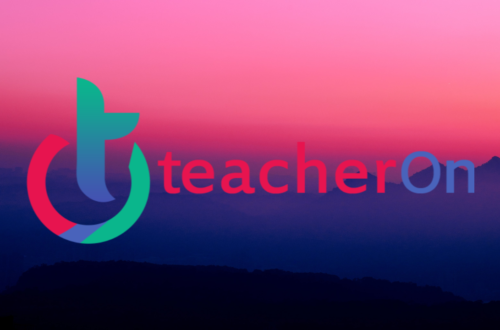What Does “Multiple Stories” Really Mean?
Imagine this—you’re at a dinner party. Two people start talking about the same event, but their versions don’t quite match. One says it was hilarious; the other found it upsetting. Who’s right? Both of them.
That’s the beauty of multiple stories: one truth, many angles. Whether it’s a personal experience, historical event, or social issue, life is never one-dimensional. We live in layers, and each layer tells a different tale.
Why Stories Matter in Our Lives
Stories shape how we view ourselves and the world. They connect generations, drive cultures, and even guide moral decisions. Your memories, beliefs, and identity—they’re all made up of stories. But what happens when multiple versions coexist? That’s where things get interesting.
The Power of Perspective
One Event, Many Interpretations
Ever had an argument with someone, and you both walked away thinking the other person was completely wrong? That’s perspective. It’s not about facts—it’s about how we perceive those facts.
Personal Narratives and Bias
We’re all biased by our upbringing, experiences, and emotions. Our minds naturally craft stories that align with our beliefs. It’s not lying—it’s human nature.
Cultural Influences on Storytelling
In some cultures, storytelling is linear. In others, it’s circular. Some emphasize heroes; others honor the community. The way a story is told reveals so much about the people telling it.
Stories in History
How Historical Narratives Shape Society
History books are filled with stories—but whose stories? Often, they’re written by those in power. That’s why we need to question what we’re taught.
Winners Write the History Books (And Why That’s Dangerous)
Think about colonial history, for example. The conquerors are often glorified, while the colonized are silenced. A fuller picture emerges only when we seek out the missing stories.
Storytelling in Modern Media
Multiple Viewpoints in News Reporting
Ever notice how different news channels report the same story in drastically different ways? It’s all in the framing.
Documentaries, Films, and the Art of Selective Storytelling
Even documentaries—meant to be “truthful”—can manipulate. By choosing what to include (and leave out), filmmakers control the narrative.
Truth vs. Narrative
Sometimes, a good story wins over cold facts. It’s more emotionally satisfying. But it’s also risky, especially when it distorts reality.
Social Media and Digital Storytelling
Your Life in Posts: A Curated Reality
You post your best moments—vacations, achievements, glam selfies. But where’s the anxiety, heartbreak, and struggle? Not in the feed.
Influencers and the Narrative of Perfection
Social media influencers often sell the illusion of a perfect life. But that’s all it is—an illusion. And it’s one we buy into far too easily.
Cancel Culture and Competing Stories
When someone gets “canceled,” multiple stories collide: the victim, the accused, the audience. Who gets to decide which story matters most?
Personal Identity and Multiple Selves
The Story You Tell Yourself About Yourself
We all have an internal narrator. Sometimes it uplifts; other times it criticizes. Either way, it shapes how we live.
Internal Conflicts and Narrative Identity
You can be both confident and insecure, kind and cruel. Your identity isn’t fixed—it’s made up of contradictory stories.
The Hero, The Victim, The Villain—All in One
Depending on the day (or mood), you might see yourself as the hero or the villain. That’s okay. Humans are complicated.
Stories as Healing Tools
Narrative Therapy and Mental Health
Therapists use storytelling to help people reframe trauma. Changing the story can change the outcome.
Journaling and the Rewriting of Traumas
Putting your thoughts on paper helps you re-author your experiences. It’s not erasing the past—it’s giving it new meaning.
Cultural and Religious Stories
Myth, Legend, and the Moral Compass
From Greek myths to African folklore to Biblical parables, stories are how we pass on values. They’re morality in motion.
Faith-Based Narratives Across the Globe
Religion is built on storytelling—creation tales, miracles, lessons. And while the stories differ, the message is often universal: love, justice, redemption.
Education and the Role of Diverse Narratives
Teaching Multiple Perspectives in Schools
History should be taught from all sides. The more viewpoints students hear, the more critical thinkers they become.
Inclusive Literature and Expanding Minds
Books by diverse authors help students step into lives they’ve never lived. That builds empathy—and a better world.
Fiction and the Multiverse of Meaning
Parallel Universes in Literature
Books like Sliding Doors or Dark Matter explore “what if” scenarios—multiple versions of the same life. Fascinating, right?
Why We Love Complex Characters
We don’t want one-note heroes. We love flawed, messy characters because they reflect us. They make us feel seen.
Business and Branding Through Storytelling
How Brands Create Emotional Stories
Nike doesn’t just sell shoes—it sells the story of ambition. Apple doesn’t just sell tech—it sells the story of creativity.
Customer Reviews as Micro-Narratives
Every review is a story. When enough stories align, they create trust. That’s why testimonials matter more than ads.
The Future of Storytelling
AI and Machine-Generated Narratives
Artificial intelligence is writing poems, screenplays—even books. But can it replicate human emotion? That’s still up for debate.
Interactive and Immersive Storytelling (VR/AR)
Imagine walking into a story, not just reading it. With VR and AR, storytelling is becoming fully immersive.
How to Embrace Multiple Stories in Your Life
Letting Go of a Single Truth
It’s okay to hold conflicting beliefs. That’s not weakness—it’s wisdom. The truth is rarely black and white.
Active Listening and Empathy
Want to truly understand someone? Don’t argue. Listen. Their story might not be your truth—but it’s theirs.
Conclusion
Embracing Complexity to Find Clarity
We live in a world of overlapping, clashing, beautiful, heartbreaking stories. To see only one version is to live with blinders on. But when we embrace the complexity—when we allow for multiple stories—we begin to understand life in all its richness. So go ahead, rewrite your story. Add chapters. Change genres. Be the author of your life.
FAQs
What does “multiple stories” mean in psychology?
It refers to the idea that people interpret experiences differently based on internal narratives, shaped by memory, trauma, beliefs, and emotions.
How do multiple narratives affect media consumption?
They make it harder to find objective truth, but also encourage critical thinking and deeper understanding of issues.
Can having different life stories cause confusion?
Yes, but it also leads to growth. Navigating conflicting stories helps you form a more complete identity.
Why is storytelling important in branding?
Stories evoke emotion, build trust, and make products relatable. A good story sells more than a good product.
How can I become a better storyteller?
Read widely, listen deeply, and practice often. Most importantly—be authentic and don’t shy away from vulnerability.
Visit for more: Softreads





